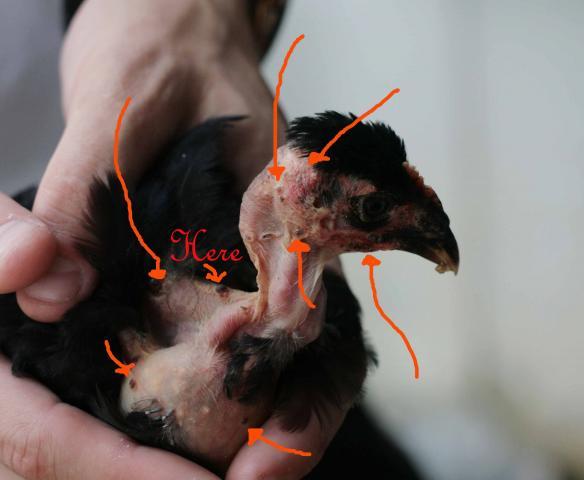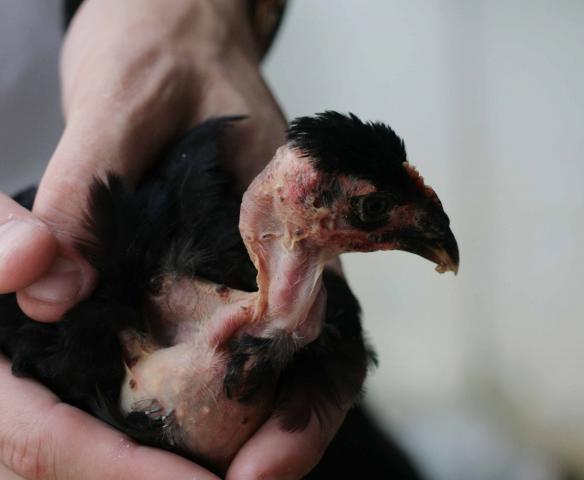My 7wk olds have sores on thier little faces and necks, it appears to only be on my two turkens what could this be? I looked every where online and found nothing. Please advise? I will post pics in about 10mins, I have to go out and get them.
Thanks
I feel really awful because I noticed skin colored bumps about 5 days ago and then today they look like this, he appered fine when I checked him yesterday so I'm at a loss, he is acting fine, eating and drinking and the others appear well too. Any advice or treatments?


Thanks
I feel really awful because I noticed skin colored bumps about 5 days ago and then today they look like this, he appered fine when I checked him yesterday so I'm at a loss, he is acting fine, eating and drinking and the others appear well too. Any advice or treatments?


Last edited:


